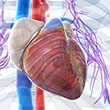Join practice-changing, interactive sessions spanning the full spectrum of vascular medicine with the Vascular Diseases Learning Pathway and the Pulmonary Vascular Disease (PVD) Learning Pathway at ACC.26, taking place March 28-30 in New Orleans, LA. Sessions in the Vascular Learning Pathway will highlight key developments in chronic limb-threatening ischemia, pulmonary embolism, peripheral arterial disease and renal denervation, along with landmark trial data, new therapies and discussions on carotid revascularization, hypertension device therapy, current controversies in the field and more.
Additionally, the PVD Learning Pathway will add special focus to science, advancements and the latest debates in pulmonary hypertension (PH). Foundational sessions, case-based learning and expert discussions will introduce you to the latest emerging technologies, including AI, wearables, and omics-driven insights that are redefining how PH is diagnosed and managed.
Can’t choose? Attend sessions from both! Register now to join forward-thinking sessions delivering cutting edge science and the latest advancements in care.





























































